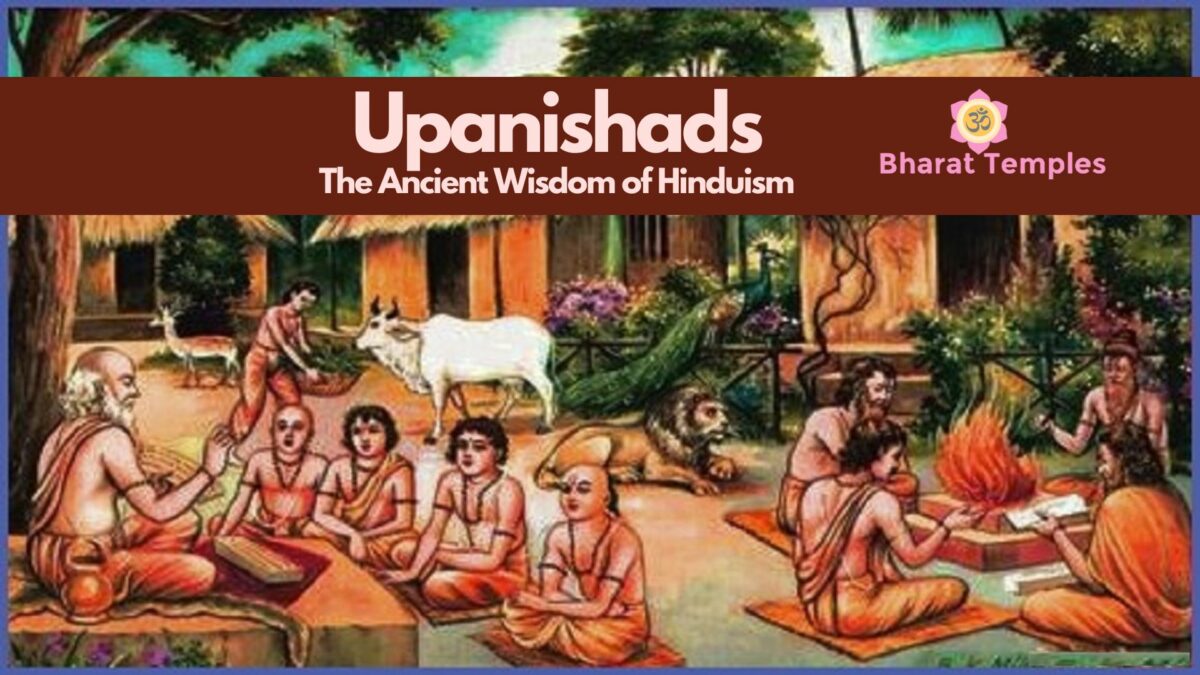Contents
Discover the timeless teachings of the Upanishads and unlock the secrets to a fulfilling and meaningful life.
The Upanishads are a collection of ancient texts that form the foundation of Hindu philosophy. They are considered to be some of the most profound and important spiritual texts in the world, and have been studied and revered for thousands of years. The Upanishads contain the wisdom of the sages and rishis of ancient India and offer a deep understanding of the nature of reality, the self, and the ultimate goal of human existence.
What are the Upanishads?
The Upanishads are a collection of texts that were written in India between 800 BCE and 200 BCE. They are part of the Vedic literature, which also includes the Vedas and the Brahmanas. The Upanishads are considered to be the “end” or “culmination” of the Vedic literature, and are known for their profound spiritual teachings. They are also known as Vedanta, which means “end of the Veda.”
The Teachings of the Upanishads
The Upanishads contain a wide range of teachings and ideas, but some of the most important include:
- The nature of the self: The Upanishads teach that the true self (atman) is the same as the ultimate reality (Brahman). This idea is known as “non-dualism” or “Advaita.”
- The importance of understanding the true nature of reality: The Upanishads teach that understanding the true nature of reality is essential for attaining liberation (moksha) from the cycle of birth and death.
- Karma and reincarnation: The Upanishads teach that a person’s actions (karma) in this life determine their fate in the next life.
- The ultimate goal of human existence: The Upanishads teach that the ultimate goal of human existence is to attain liberation (moksha) from the cycle of birth and death and to realize the true nature of the self.
RIG-VEDA:
- Aitareya Upanishad
- Aksha-Malika Upanishad
- Atma-Bodha Upanishad
- Bahvricha Upanishad
- Kaushitaki-Brahmana Upanishad
- Mudgala Upanishad
- Nada-Bindu Upanishad
- Nirvana Upanishad
- Saubhagya-Lakshmi Upanishad
- Tripura Upanishad
SUKLA-YAJUR-VEDA:
- Adhyatma Upanishad
- Advaya-Taraka Upanishad
- Bhikshuka Upanishad
- Brihadaranyaka Upanishad
- Hamsa Upanishad
- Isavasya Upanishad
- Jabala Upanishad
- Mandala-Brahmana Upanishad
- Mantrika Upanishad
- Muktika Upanishad
- Niralamba Upanishad
- Paingala Upanishad
- Paramahamsa Upanishad
- Satyayaniya Upanishad
- Subala Upanishad
- Tara-Sara Upanishad
- Trisikhi-Brahmana Upanishad
- Turiyatita-Avadhuta Upanishad
- Yajnavalkya Upanishad
KRISHNA-YAJUR -VEDA:
- Akshi Upanishad
- Amrita-Bindhu Upanishad
- Amrita-Nada Upanishad
- Avadhuta Upanishad
- Brahma-Vidya Upanishad
- Brahma Upanishad
- Dakshinamurti Upanishad
- Dhyana-Bindu Upanishad
- Ekakshara Upanishad
- Garbha Upanishad
- Kaivalya Upanishad
- Kalagni-Rudra Upanishad
- Kali-Santarana Upanishad
- Katha Upanishad
- Katharudra Upanishad
- Kshurika Upanishad
- Maha-Narayana (or) Yajniki Upanishad
- Pancha-Brahma Upanishad
- Pranagnihotra Upanishad
- Rudra-Hridaya Upanishad
- Sarasvati-Rahasya Upanishad
- Sariraka Upanishad
- Sarva-Sara Upanishad
- Skanda Upanishad
- Suka-Rahasya Upanishad
- Svetasvatara Upanishad
- Taittiriya Upanishad
- Tejo-Bindu Upanishad
- Varaha Upanishad
- Yoga-Kundalini Upanishad
- Yoga-Sikha Upanishad
- Yoga-Tattva Upanishad
SAMA-VEDA:
- Aruni Upanishad
- Avyakta Upanishad
- Chandogya Upanishad
- Darsana Upanishad
- Jabali Upanishad
- Kena Upanishad
- Kundika Upanishad
- Maha Upanishad
- Maitrayani Upanishad
- Maitreya Upanishad
- Rudraksha-Jabala Upanishad
- Sannyasa Upanishad
- Savitri Upanishad
- Vajrasuchika Upanishad
- Vasudeva Upanishad
- Yoga-Chudamani Upanishad
ATHARVA-VEDA:
- Annapurna Upanishad
- Atharvasikha Upanishad
- Atharvasiras Upanishad
- Atma Upanishad
- Bhasma-Jabala Upanishad
- Bhavana Upanishad
- Brihad-Jabala Upanishad
- Dattatreya Upanishad
- Devi Upanishad
- Ganapati Upanishad
- Garuda Upanishad
- Gopala-Tapaniya Upanishad
- Hayagriva Upanishad
- Krishna Upanishad
- Maha-Vakya Upanishad
- Mandukya Upanishad
- Mundaka Upanishad
- Narada-Parivrajaka Upanishad
- Nrisimha-Tapaniya Upanishad
- Para-Brahma Upanishad
- Paramahamsa-Parivrajaka Upanishad
- Pasupata-Brahmana Upanishad
- Prasna Upanishad
- Rama-Rahasya Upanishad
- Rama-Tapaniya Upanishad
- Sandilya Upanishad
- Sarabha Upanishad
- Sita Upanishad
- Surya Upanishad
- Tripadvibhuti-Mahanarayana Upanishad
- Tripura-Tapini Upanishad
The Impact of the Upanishads
The Upanishads have had a profound impact on Hinduism and Indian philosophy. They are considered to be some of the most important spiritual texts in the world and have been studied and revered for thousands of years. The teachings of the Upanishads have influenced many other spiritual and philosophical traditions, including Buddhism and Jainism.
The Upanishads are a collection of ancient texts that form the foundation of Hindu philosophy. They offer a deep understanding of the nature of reality, the self, and the ultimate goal of human existence. The teachings of the Upanishads have had a profound impact on Hinduism and Indian philosophy, and continue to be studied and revered today. By studying the Upanishads, we can gain a greater understanding of the world around us and unlock the secrets to a fulfilling and meaningful life.
FAQs
The Upanishads are a collection of ancient texts that form the foundation of Hindu philosophy. They were written in India between 800 BCE and 200 BCE, and are considered to be some of the most profound and important spiritual texts in the world. The Upanishads are part of the Vedic literature, which also includes the Vedas and the Brahmanas.
The Upanishads contain a wide range of teachings and ideas, but some of the most important include: the nature of the self, the importance of understanding the true nature of reality, karma and reincarnation, and the ultimate goal of human existence.
The Upanishads were written by a number of ancient sages and rishis of India, over a period of several centuries.
The Upanishads teach that the ultimate goal of human existence is to attain liberation (moksha) from the cycle of birth and death and to realize the true nature of the self.
The teachings of the Upanishads have influenced many other spiritual and philosophical traditions, including Buddhism and Jainism.


